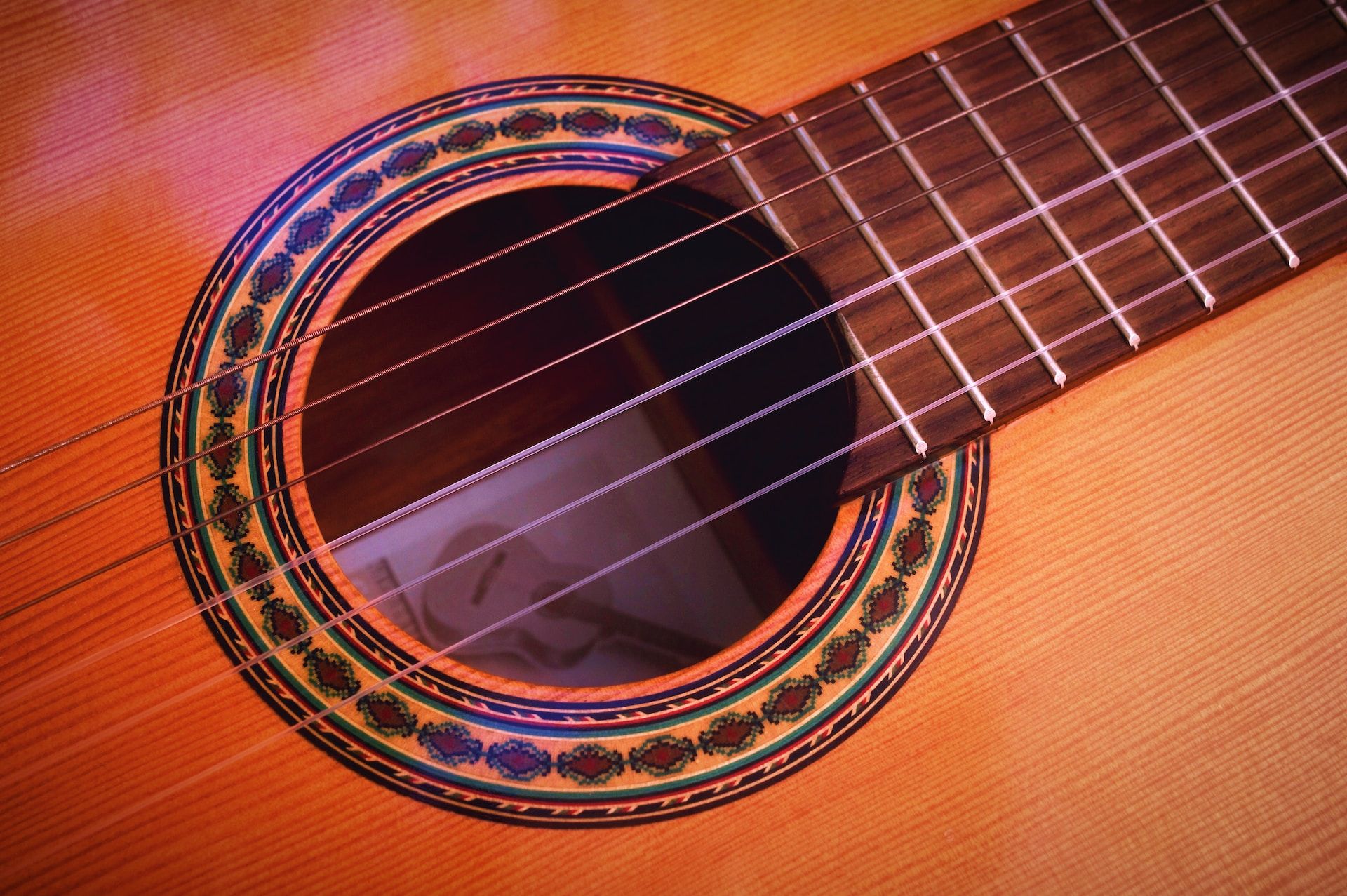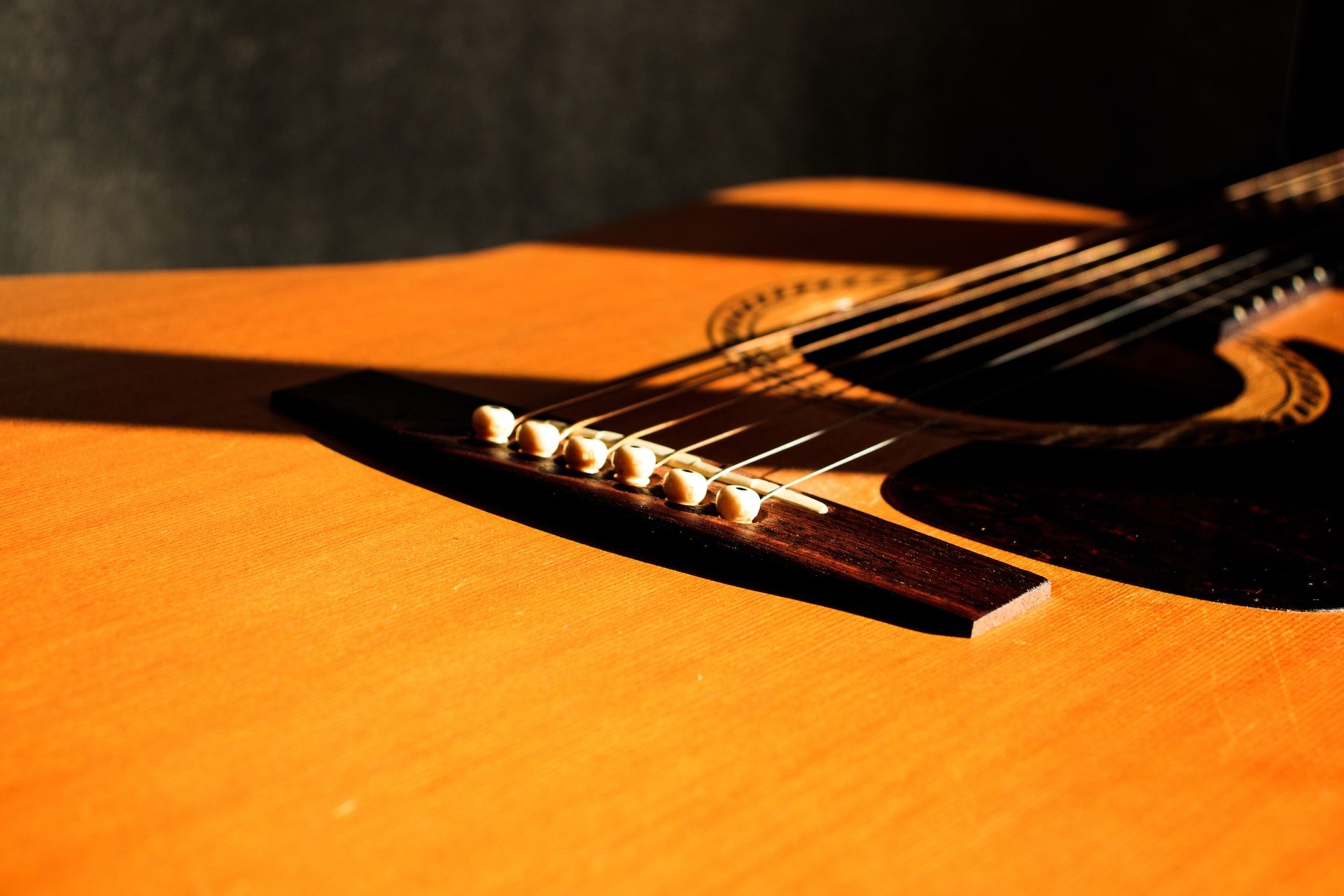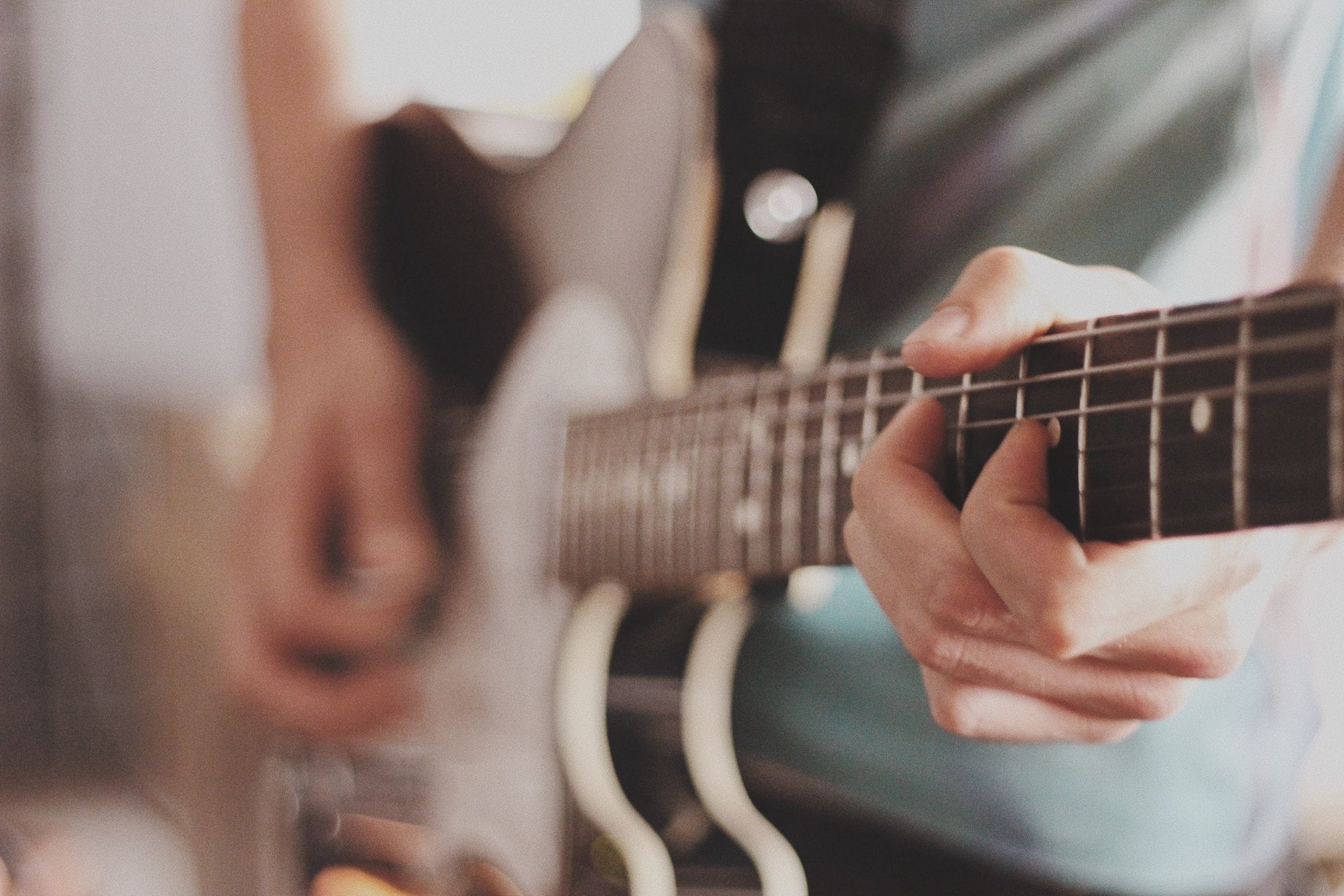Guitar Lessons in Ilkley and Online

I've been teaching guitar now for almost 16 years to hundreds of pupils of all ages and abilities on a 1:1 basis.
I am now based in Ilkley, West Yorkshire and have pupils travelling to me for guitar lessons from Ilkley, Ben Rhydding, Addingham, Menston, Burley in Wharfedale, Otley, Keighley, Skipton, Guiseley, Bolton Abbey, Bradford, Leeds City Centre and more. Additionally I provide tuition online via Zoom, FaceTime or Skype and have nationwide and international pupils.
I teach classical, acoustic and electric guitar - and welcome all styles and genres. In this blog entry I'd like to discuss the individual differences (and similarities) between each kind of guitar.
What is a classical guitar?
For the uninitiated, classical guitar refers to the nylon-strung (as opposed to steel like an acoustic or electric guitar) or "Spanish" guitar and is associated with the performance of classical music styles such as Baroque, Classical or Romantic or relatively modern genres like Bossanova.
Famous players of the instrument over history include Fernando Sor, Matteo Carcassi and Francisco Tarrega in the classical era through to Julian Bream and John Williams towards the present day. Many great guitarists in Brazillian music such as João Gilberto and Antônio Carlos Jobim also favoured the mellow tone of the instrument.
Why learn classical guitar?

Five positives of learning classical guitar:
- It's ideal for children starting out as the nylon strings are easier to apply pressure to for young fingers compared to the steel strings of an acoustic or electric. The body is also smaller, therefore ergonomically a better choice.
- Although you can dabble in TAB as a classical guitarist, it is more associated with reading standard music notation - in short you will have the opportunity to learn how to read music.
- When Beethoven heard the classical guitar for the first time he remarked that it sounded like "a miniature orchestra". This is because, unlike the acoustic and electric which are more associated with the strumming of chords and the picking of lead lines, the classical guitar tends to play a bassline, accompaniment and a melody, all in one.
- It teaches you specific technique and discipline in both left and right hands and these formalities and traditions go back hundreds of years.
- It sounds gorgeous! Whether you're playing gentle classical pieces, or jubilant flamenco or soulful bossanova, the classical guitar has a unique and beautiful sound of it's own.
Depending on the pupil in question, I'm happy to take a relaxed and gentle approach to learning the classical guitar but can also accomodate progressing through the exam grades using the ABRSM or Trinity syllabuses.
I'm happy for us to dabble in a little bit of classical alongside other guitar styles! I like to try to inspire my pupils with a whole variety of different stuff if they show an interest.
What is an acoustic guitar?
An acoustic guitar is a hollow bodied wooden guitar with six strings and a soundboard and sound hole which produce the bulk of the sound, as opposed to the electric guitar which uses electromagnetic pick-ups and amplification to produce the sound.
An acoustic differs from (and is sometimes confused with) the classical guitar by way of being commonly larger and using steel strings rather than nylon. The steel strings produce a loud and bright tone.
Why learn acoustic guitar?

Five positives of learning acoustic guitar:
- Relatively inexpensive compared to the electric guitar (and amplifier) therefore not too much of a financial risk when first starting out.
- A great accompaniment instrument for singing along with your favourite tunes (or perhaps one one day writing your own!). Learn a few basic chords and some simple strumming patterns and off you go.
- A versatile music instrument, lending itself well to numerous styles of music from rock to pop, indie to folk, blues and beyond.
- They are portable via a soft case which can be carried on your back and taken to friends, gigs, parties, holidays etc.
- There is no immediate need to learn how to read music notation as the acoustic guitar is more often associated with chord diagrams and playing by ear.
Depending on the pupil in question, I'm happy to take a relaxed and gentle approach to learning the acoustic guitar but can also accommodate progressing through the exam grades using something like the Rockschool Acoustic Guitar syllabus.
I'm happy for us to dabble in a little bit of acoustic playing alongside other guitar styles. I like to try to inspire my pupils with a whole variety of different stuff if they show an interest.
What is an electric guitar?
Like the classical and acoustic guitars, the electric guitar has 6 strings. Unlike those though, it requires an amplifier to be heard properly. It comes in many shapes and sizes - some of the most common and classic designs include the solid-bodied Fender Stratocaster and Telecaster and the Gibson Les Paul.
Using tone controls, switches and effects pedals, the sound of the electric guitar can also be altered in numerous ways.
Why learn electric guitar?

Five positives of learning electric guitar:
- Tonal versatility. The electric guitar has been a key instrument in the development of a huge number of musical styles and genres due to the wide range of sounds it can produce.
- The electric guitar is typically easier to play than the acoustic guitar due to the thinner string gauges and smaller body size.
- It is an expressive instrument which can be utilised to great effect with legato playing such as bending and sliding strings, vibrato, hammer-ons and pull-offs etc.
- There is no immediate need to learn how to read music notation as the electric guitar is more often associated with TAB, chord diagrams and playing by ear.
- A huge choice of different shapes and colours; something to appeal to anyone's taste.
Depending on the pupil in question, I'm happy to take a relaxed and gentle approach to learning the acoustic guitar but can also accommodate progressing through the exam grades using something like the Rockschool or Trinity Rock and Pop syllabus.
I'm happy for us to dabble in a little bit of electric playing alongside other guitar styles. I like to try to inspire my pupils with a whole variety of different stuff if they show an interest.
Book a lesson with Ben here
